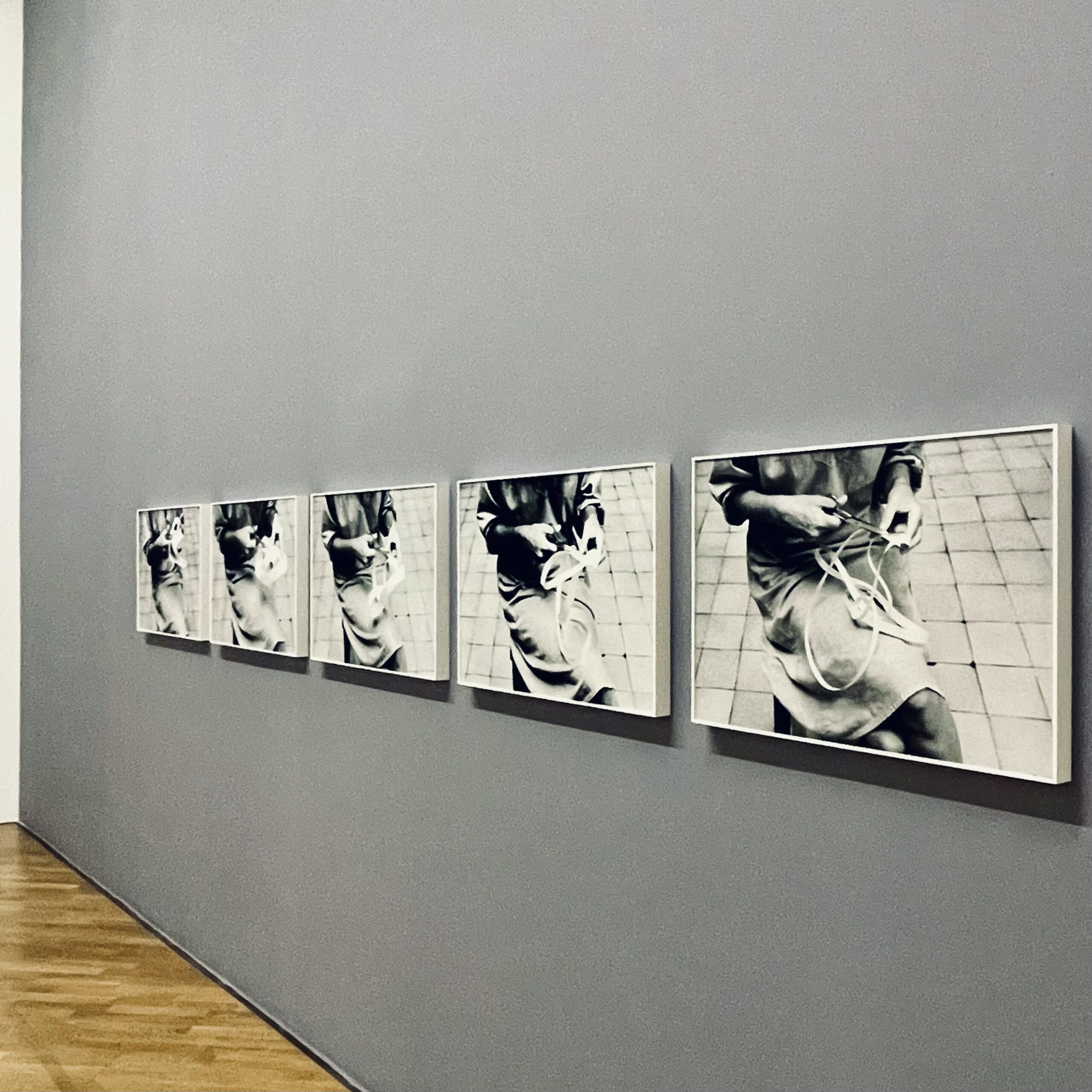
Caminhando is a proposal that can be carried out by anyone, anywhere, with the following recommendations: a strip of paper should be glued in a twisted way, like a Mobius strip. Using a pair of scissors, the person must cut the ribbon continuously lengthwise, making several turns and, consequently, producing several smaller ribbons, until it is no longer possible to cut them due to their thinness.
In Brazil, the Möbius strip had already appeared as a reference in a work that had a major impact on the production of the 1950s: Unidade tripartida (Tripartite Unity, 1948), by Swiss artist Max Bill, which was awarded at the 1st Bienal de São Paulo in 1951. Lygia Clark recognized its influence, and what interested her was the construction of something which was at once trivial, ephemeral, reproducible and, above all, a pure act, disrupting the fantasy of the creative genius of the artist and of the museum as a privileged space for sentient experience.
Caminhando signified the overcoming of the artistic object and paved the road that would lead Clark to a deeper experimentation with the body.

